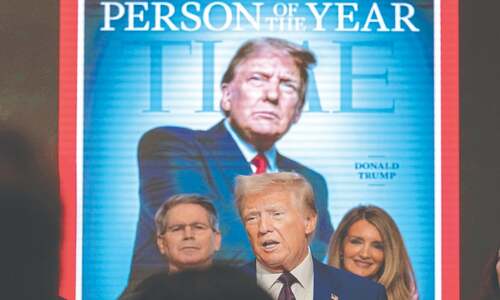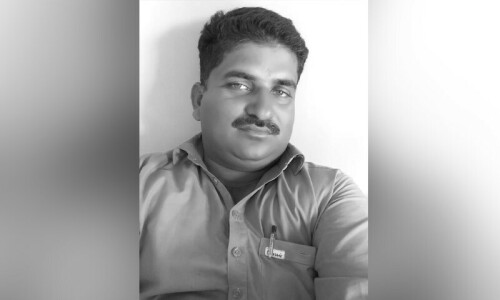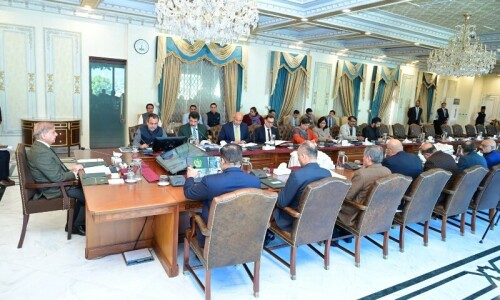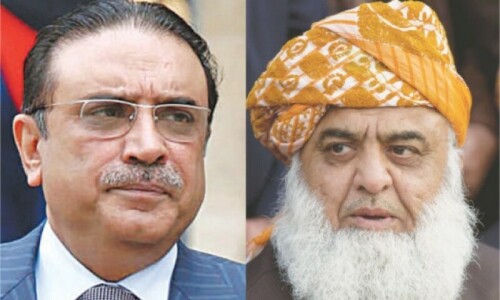MOSCOW: They may have ceased to be soulmates, but as the Russian and US presidents prepare to step down over the next few months, both sides are keen to ensure a civilised parting, commentators say.
Russian newspapers noted a new warmth in US-Russia ties this week as Secretary of State Condoleezza Rice and Defence Secretary Robert Gates held talks in Moscow on one of the most contentious issues dividing the two powers: missile defence.
All observers noted that Russia had not dropped its objections to US plans to build missile defence facilities in two European states that were ruled from Moscow in Soviet times: the Czech Republic and Poland.
But Foreign Minister Sergey Lavrov’s upbeat tone and acknowledgement that Washington had made some “important” suggestions prompted state newspaper Rossiyskaya Gazeta to comment that the latest meeting “clearly can’t be called a failure,” even though Gates had looked a little sceptical at the talks.
For analyst Oksana Antonenko, the friendlier tone contrasted with a speech by Putin in Munich last year in which he denounced the United
States for over-stepping its boundaries, notably in Iraq, and was evidence the two sides wanted to “put a brave face” on things.
While Putin is preparing to hand over to president-elect Dmitry Medvedev next month, the Kremlin is also looking beyond Bush’s flagging presidency, which ends in January, said Antonenko, of the London-based International Institute for Strategic Studies.
“There is no reason for a big fight with this administration,” said Antonenko.
In a reminder of the friendship the two men found in 2001, when Bush announced he had got a sense of Putin’s soul, the Russian leader appeared to express genuine sympathy for Bush last month.
“Do you think it’s easy for Bush?” he asked journalists when asked about the heavy burden of being a president.
The Russian leader also has reasons of his own for avoiding confrontation, says Fyodor Lukyanov, editor of the journal Russia in Global Affairs.
Putin will want to ensure a smooth reception when he attends a summit of the Nato military alliance next month to which he has unusually been invited, Lukyanov said.
Rather than blasting the West, he will try to cement his own legacy and make less of a belligerent speech than that in Munich, said Lukyanov.
The speech will be “much more visionary and constructive” and will “outline the common future and threats,” he said.
Putin is also reluctant to make sudden moves that could cause problems as he hands over to Medvedev and moves as expected to the post of prime minister, a highly unusual “tandem” arrangement, Lukyanov said.
“We are entering the phase of a very interesting but also fragile building up of a de facto power system where we will have two leaders.... It will need very careful and cautious behaviour from both sides,” he said.
Russian newspapers concurred that the way was being paved for the Nato summit on April 2-4 in Bucharest to pass off cordially.
In particular that means Bush is unlikely to push hard for the entry to Nato of two ex-Soviet aspirants, Georgia and Ukraine, whose adhesion to the bloc constitutes a red line for Russia, said the Kommersant broadsheet.
Antonenko noted other signs of entente between Moscow and Washington, notably on Iran’s nuclear programme and stabilising Afghanistan.
The two sides have increasingly been in accord on Iran, with Russia supporting a recent UN resolution on the Islamic state’s nuclear ambitions.
Talks are also under way on allowing Nato to ship material through Russian territory for use in Afghanistan, as well as cooperation in counter-narcotics training in the region, senior Nato official Robert Simmons said this month.
Nonetheless, Antonenko doubts Russia and the United States are returning to the kind of friendliness seen in the era of US president Bill Clinton and his Russian counterpart Boris Yeltsin.
In a sign of potential difficulties, two US presidential
candidates have made jibes at Putin.
Democrat Hillary Clinton has claimed Putin has no soul while Republican John McCain, alluding to Putin’s secret service past, has said “I looked into Putin’s eyes, and saw three things, a ‘K’ a ‘G’ and a ‘B.’”
—AFP














































Dear visitor, the comments section is undergoing an overhaul and will return soon.